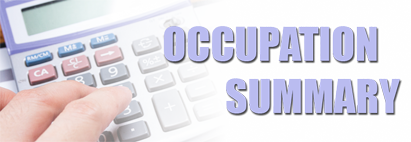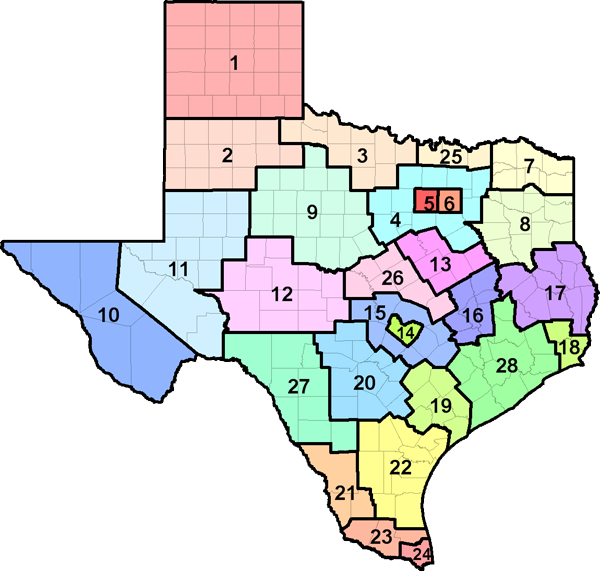The U.S. Department of Labor has developed an automated occupational information database, O*NET, that identifies and describes work content, work skills, and training requirements for all jobs across the country in all sectors of the economy. Much of the occupational information contained in this report is derived directly from the O*NET database, and supplemented with information from the Bureau of Labor Statistics, Census Bureau, and Labor Market and Career Information.


| Region | Employment | Projected Employment 2030 | Projected Annual Openings 2030 |
Annual Growth Rate |
Average Income |
|---|---|---|---|---|---|
| Texas (all regions) |
|
|
|
|
|
| Top 10 Relevant Knowledge Areas | Relevant Importance Levels |
|---|---|
| Psychology Knowledge of human behavior and performance; individual differences in ability, personality, and interests; learning and motivation; psychological research methods; and the assessment and treatment of behavioral and affective disorders. |
|
| Therapy and Counseling Knowledge of principles, methods, and procedures for diagnosis, treatment, and rehabilitation of physical and mental dysfunctions, and for career counseling and guidance. |
|
| Customer and Personal Service Knowledge of principles and processes for providing customer and personal services. This includes customer needs assessment, meeting quality standards for services, and evaluation of customer satisfaction. |
|
| English Language Knowledge of the structure and content of the English language including the meaning and spelling of words, rules of composition, and grammar. |
|
| Education and Training Knowledge of principles and methods for curriculum and training design, teaching and instruction for individuals and groups, and the measurement of training effects. |
|
| Sociology and Anthropology Knowledge of group behavior and dynamics, societal trends and influences, human migrations, ethnicity, cultures, and their history and origins. |
|
| Computers and Electronics Knowledge of circuit boards, processors, chips, electronic equipment, and computer hardware and software, including applications and programming. |
|
| Administration and Management Knowledge of business and management principles involved in strategic planning, resource allocation, human resources modeling, leadership technique, production methods, and coordination of people and resources. |
|
| Administrative Knowledge of administrative and office procedures and systems such as word processing, managing files and records, stenography and transcription, designing forms, and workplace terminology. |
|
| Philosophy and Theology Knowledge of different philosophical systems and religions. This includes their basic principles, values, ethics, ways of thinking, customs, practices, and their impact on human culture. |
| Top 10 Relevant Skill Areas | Relevant Importance Levels |
|---|---|
| Social Perceptiveness Being aware of others' reactions and understanding why they react as they do. |
|
| Active Listening Giving full attention to what other people are saying, taking time to understand the points being made, asking questions as appropriate, and not interrupting at inappropriate times. |
|
| Speaking Talking to others to convey information effectively. |
|
| Reading Comprehension Understanding written sentences and paragraphs in work-related documents. |
|
| Writing Communicating effectively in writing as appropriate for the needs of the audience. |
|
| Service Orientation Actively looking for ways to help people. |
|
| Monitoring Monitoring/Assessing performance of yourself, other individuals, or organizations to make improvements or take corrective action. |
|
| Judgment and Decision Making Considering the relative costs and benefits of potential actions to choose the most appropriate one. |
|
| Critical Thinking Using logic and reasoning to identify the strengths and weaknesses of alternative solutions, conclusions, or approaches to problems. |
|
| Complex Problem Solving Identifying complex problems and reviewing related information to develop and evaluate options and implement solutions. |
| Top 10 Relevant Abilities | Relevant Importance Levels |
|---|---|
| Oral Comprehension The ability to listen to and understand information and ideas presented through spoken words and sentences. |
|
| Oral Expression The ability to communicate information and ideas in speaking so others will understand. |
|
| Problem Sensitivity The ability to tell when something is wrong or is likely to go wrong. It does not involve solving the problem, only recognizing that there is a problem. |
|
| Written Expression The ability to communicate information and ideas in writing so others will understand. |
|
| Written Comprehension The ability to read and understand information and ideas presented in writing. |
|
| Speech Clarity The ability to speak clearly so others can understand you. |
|
| Speech Recognition The ability to identify and understand the speech of another person. |
|
| Deductive Reasoning The ability to apply general rules to specific problems to produce answers that make sense. |
|
| Inductive Reasoning The ability to combine pieces of information to form general rules or conclusions (includes finding a relationship among seemingly unrelated events). |
|
| Fluency of Ideas The ability to come up with a number of ideas about a topic (the number of ideas is important, not their quality, correctness, or creativity). |